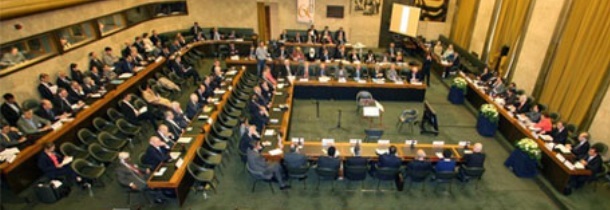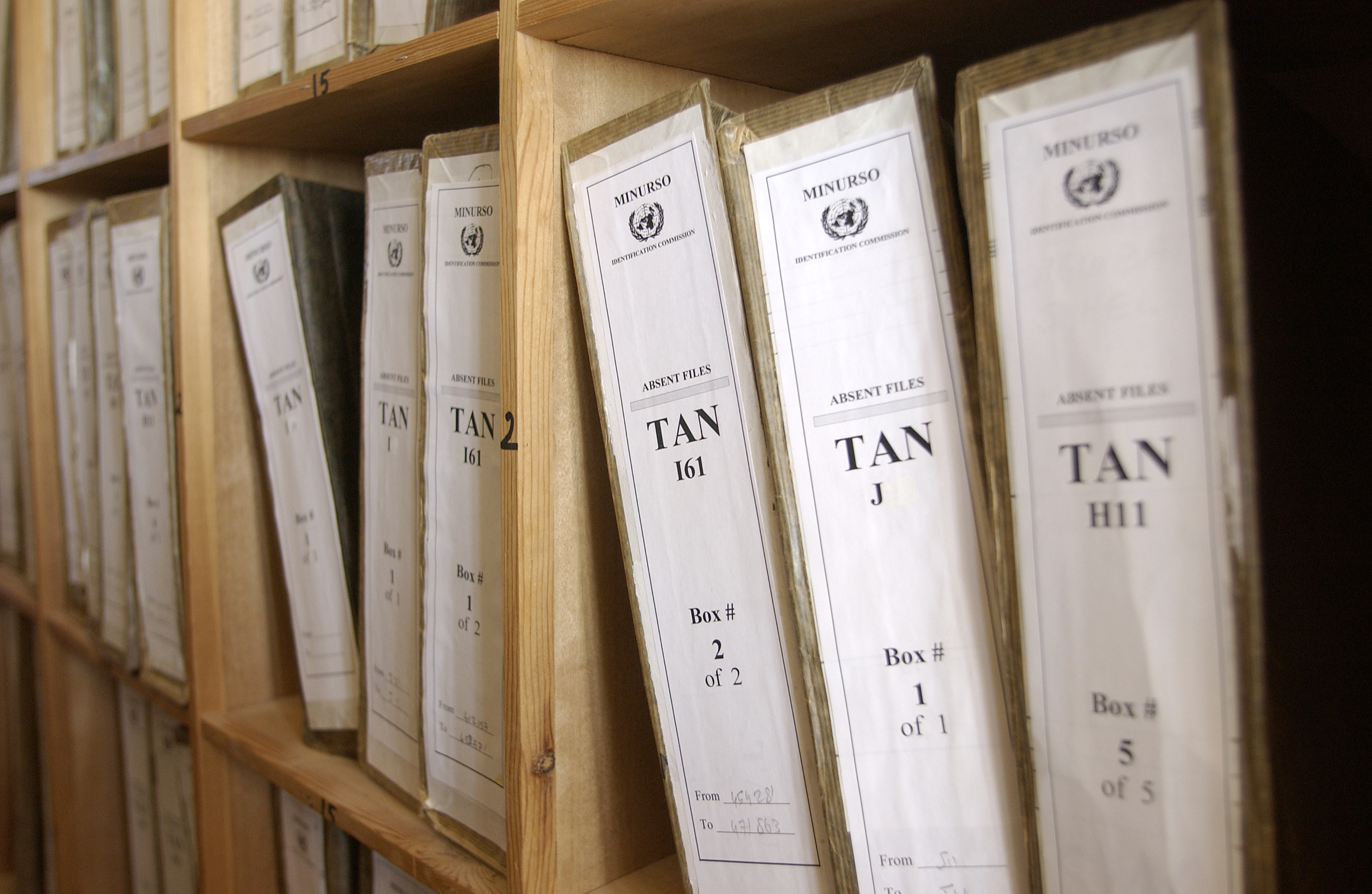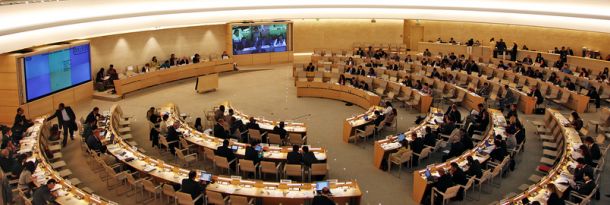WSRW pide a la ONU que vigile la explotación de los recursos naturales

Durante el 4º Comité de Descolonización de la ONU celebrado en Nueva York los pasados 6 a 12 de octubre, Western Sahara Resource Watch requirió a la ONU el envío de una Misión de Observación al Sahara Occidental, para vigilar la explotación de recursos naturales en el territorio.
Publicado 18 octubre 2009
La coordinadora internacional de Western Sahara Resource Watch, Cate Lewis, pidió la semana pasada ante el 4º Comité de Descolonización de la ONU, la monitorización de la explotación de los recursos naturals del Sahara Occidental, estableciendo si dicha explotación se realize de acuerdo con los intereses del pueblo saharaui
Leer a continuación el discurso de Cate Lewis (en inglés)
Petition
on Western Sahara to the IVth UN Special Political and Decolonization Committee
From Western Sahara Resource Watch
On behalf of the Australia Western Sahara Association
Cate Lewis
October 2009
Mr Chairman
Western Sahara Resource Watch thanks you for the opportunity to speak before the United Nations IV Committee on Decolonization on the subject of protecting the natural resources of Western Sahara for the Saharawi people.
Our organization includes Saharawi members and represents individuals and organizations in over 30 countries around the world. Our aim is to research what is happening with the resources in that part of Western Sahara under Moroccan control and to protect them against exploitation by anyone other than the Saharawis themselves after a vote of self-determination.
It is our belief that it’s the United Nations which should be protecting these resources in a concrete and practical way for the Saharawi people instead of standing by as they are sold for Morocco’s gain.
The former UN legal counsel in a legal opinion for the Security Council in 2002 makes clear that the exploitation of these resources requires both the consent of the Saharawi people and it must also be to their benefit. Neither proviso is satisfied as things stand today.
In an important law conference in December 2008 hosted by the South African Department of Foreign Affairs and the University of Pretoria, the author of the UN opinion, Hans Corell, clarified this analysis, spelling out unequivocally that Morocco should be holding the natural resources of Western Sahara in trust for the people until such time as they can determine their own affairs. See: http://www.havc.se/res/SelectedMaterial/20081205pretoriawesternsahara1.pdf
http://www.wsrw.org/index.php?parse_news=single&cat=111&art=977
The situation is very clear in law, yet the plunder takes place every day with impunity, in a number of industries:
Phosphate
Phosphate mined in the territory is sold at great profit for the Moroccan state company, OCP without any benefit for the Saharawi people. Indeed, since Morocco took over the industry many Saharawi workers have lost their jobs and their rights under their Spanish contracts to compensation and a pension. Saharawis see no improvement in living conditions flowing from this lucrative trade.
The price of phosphate rose steeply in 2008. We estimate that the value of the phosphate filling one large bulk carrier is equivalent to the entire multilateral humanitarian aid going to the Saharawi refugee camps each year. And 100 phosphate vessels depart occupied Western Sahara annually.
The Australia Western Sahara Association finds it particularly troubling that three Australian fertiliser companies are importing phosphate mined in Western Sahara. Ethically minded investors in Sweden and Norway have blacklisted two of the Australian companies involved: Wesfarmers and Incitec Pivot. Insurance companies, banks and pension funds have divested their portfolios of shares in the two firms, on account of the unethical trade. They do not wish to give legitimacy to an occupying power, or impede the peace process.
Fish
Far from protecting the natural resources of its former colony, Spain participates in the pillage of its rich fishing grounds. In addition to the tonnes of fish taken from the coastal waters of Western Sahara, foreign companies have built factories onshore to process the fish by deep freezing, canning or making fish meal.
In the past year the Saharawi Republic declared its maritime boundaries, making any activity in these offshore zones a clear violation of Saharawi rights to maritime space. This places a new perspective on fishing and offshore oil exploration.
Sand
Beaches and the building industry in the Canary Islands both benefit from sand exported from Western Sahara, also the island of Madeira. This was pointed out by France Libertés – Fondation Danielle Mitterrand in its submission to the UN Human Rights Council in Geneva in March 2009.
Water
Fossil water is another finite resource, which is being depleted by horticultural projects near Dakhla for such produce as tomatoes, cucumbers and melons. The fruit and vegetables are sold in Europe mainly by French firms.
A Norwegian supermarket chain stopped importing tomatoes grown in Western Sahara in March when it became aware of how the unethical trade undermines the UN peace process. But the export continues to the EU, USA and Canada.
Oil
Companies from Ireland and the USA have concluded contracts with the Moroccan oil company ONHYM to explore areas, which include occupied Saharawi territories. This should stop.
Other minerals
Exploration continues for other precious metals and minerals, in violation of Hans Corell’s legal opinion of 2002.
Conclusion
We call on the Fourth Committee to reaffirm the permanent sovereignty of peoples over their natural resources in order to protect them in Western Sahara as the UN did in the case of Namibia in the 1980s prior to its gaining independence from South Africa in 1990.
Western Sahara Resource Watch believes that the United Nations mission to Western Sahara should be empowered to carry out its duty to protect the natural resources of the territory from exploitation by the occupying power, Morocco.
As a first practical step, we suggest the UN should send a mission of observation to the territory to report on the extent of Morocco’s exploitation of the natural resources of Western Sahara and whether it is taking place in accordance with the wishes and interests of the Saharawi people.
Thank you, Mr Chairman.
Noticias
La votación de la ONU sobre el Sáhara Occidental plantea más preguntas que respuestas
Tras los titulares y la manipulación diplomática que pretenden presentar al Consejo de Seguridad como alineado con Marruecos, se esconde una realidad mucho más matizada: el núcleo del debate sigue siendo precisamente el derecho que Rabat lleva décadas intentando enterrar —el derecho del pueblo saharaui a la autodeterminación.
18 noviembre 2025
WSRW insta a abordar el saqueo
WSRW pide a los Estados miembros de la ONU que aborden el saqueo del Sáhara Occidental por parte de Marruecos durante la revisión del Examen Periódico Universal de Marruecos en noviembre.
18 octubre 2022
En el Consejo de DDHH, apremio a España por los derechos saharauis
Namibia y Timor Oriental han recomendado hoy a España que respete el derecho del pueblo saharaui al consentimiento libre, previo e informado con respecto a la explotación de los recursos naturales del Sáhara Occidental.
22 enero 2020
Portavoz de Ban Ki-Moon: sí estaba acreditada
El portavoz de Ban Ki-Moon ratificó que Suelma Beirouk, la Vicepresidente del Parlamento Panafricano, estaba acreditada ante la COP22.
14 noviembre 2016



